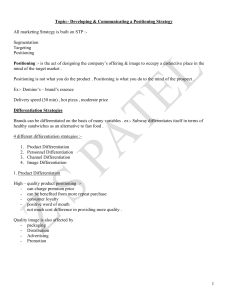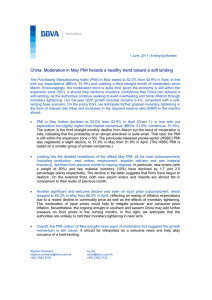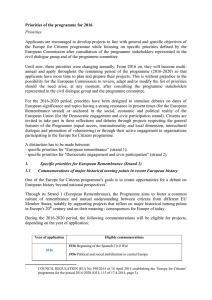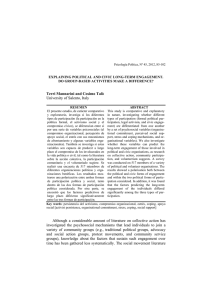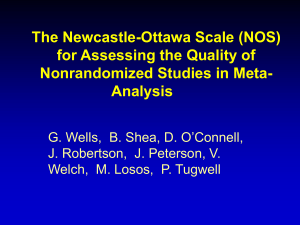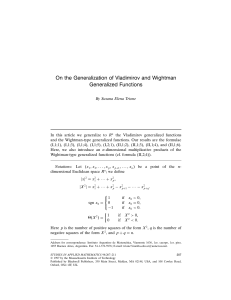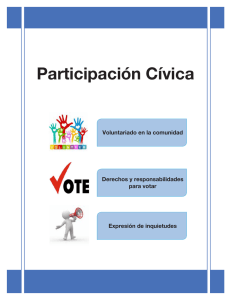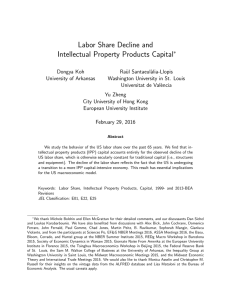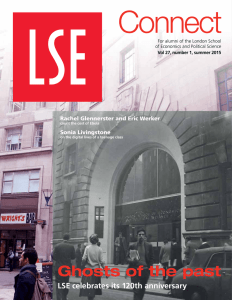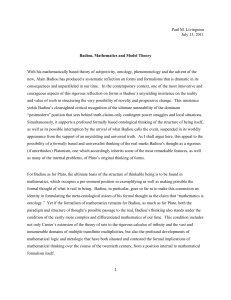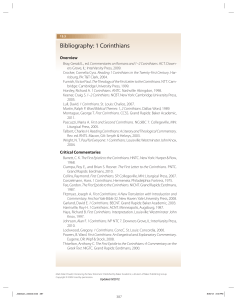Why we need to think again about the decline in social capital.
Anuncio
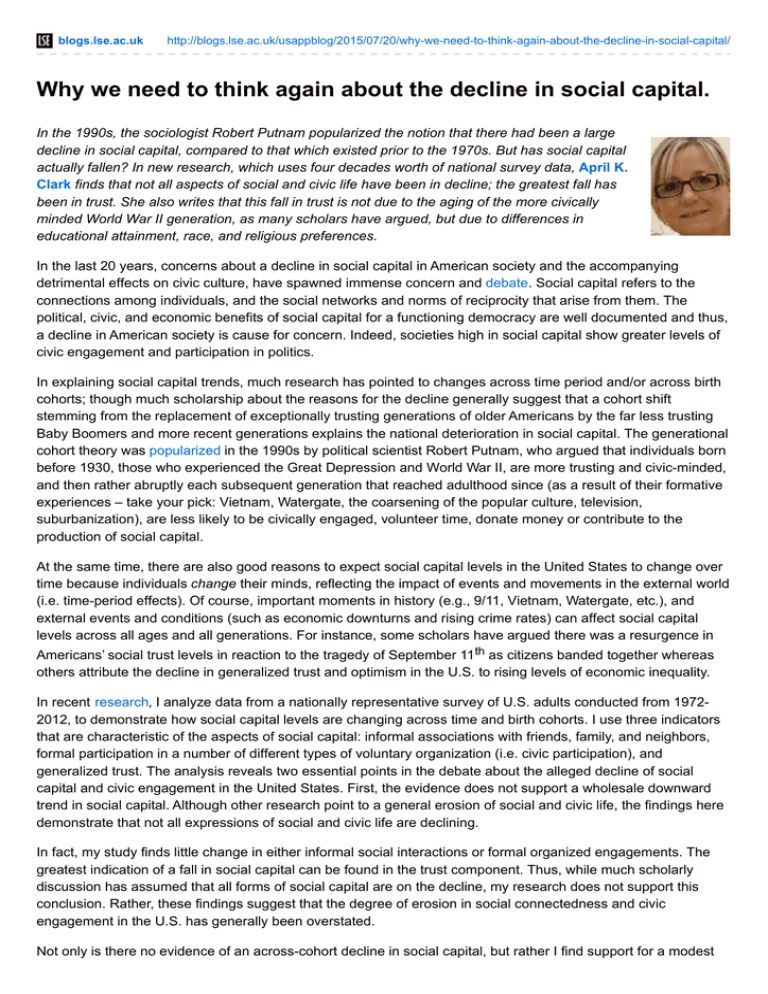
blogs.lse.ac.uk http://blogs.lse.ac.uk/usappblog/2015/07/20/why-we-need-to-think-again-about-the-decline-in-social-capital/ Why we need to think again about the decline in social capital. In the 1990s, the sociologist Robert Putnam popularized the notion that there had been a large decline in social capital, compared to that which existed prior to the 1970s. But has social capital actually fallen? In new research, which uses four decades worth of national survey data, April K. Clark finds that not all aspects of social and civic life have been in decline; the greatest fall has been in trust. She also writes that this fall in trust is not due to the aging of the more civically minded World War II generation, as many scholars have argued, but due to differences in educational attainment, race, and religious preferences. In the last 20 years, concerns about a decline in social capital in American society and the accompanying detrimental effects on civic culture, have spawned immense concern and debate. Social capital refers to the connections among individuals, and the social networks and norms of reciprocity that arise from them. The political, civic, and economic benefits of social capital for a functioning democracy are well documented and thus, a decline in American society is cause for concern. Indeed, societies high in social capital show greater levels of civic engagement and participation in politics. In explaining social capital trends, much research has pointed to changes across time period and/or across birth cohorts; though much scholarship about the reasons for the decline generally suggest that a cohort shift stemming from the replacement of exceptionally trusting generations of older Americans by the far less trusting Baby Boomers and more recent generations explains the national deterioration in social capital. The generational cohort theory was popularized in the 1990s by political scientist Robert Putnam, who argued that individuals born before 1930, those who experienced the Great Depression and World War II, are more trusting and civic-minded, and then rather abruptly each subsequent generation that reached adulthood since (as a result of their formative experiences – take your pick: Vietnam, Watergate, the coarsening of the popular culture, television, suburbanization), are less likely to be civically engaged, volunteer time, donate money or contribute to the production of social capital. At the same time, there are also good reasons to expect social capital levels in the United States to change over time because individuals change their minds, reflecting the impact of events and movements in the external world (i.e. time-period effects). Of course, important moments in history (e.g., 9/11, Vietnam, Watergate, etc.), and external events and conditions (such as economic downturns and rising crime rates) can affect social capital levels across all ages and all generations. For instance, some scholars have argued there was a resurgence in Americans’ social trust levels in reaction to the tragedy of September 11 th as citizens banded together whereas others attribute the decline in generalized trust and optimism in the U.S. to rising levels of economic inequality. In recent research, I analyze data from a nationally representative survey of U.S. adults conducted from 19722012, to demonstrate how social capital levels are changing across time and birth cohorts. I use three indicators that are characteristic of the aspects of social capital: informal associations with friends, family, and neighbors, formal participation in a number of different types of voluntary organization (i.e. civic participation), and generalized trust. The analysis reveals two essential points in the debate about the alleged decline of social capital and civic engagement in the United States. First, the evidence does not support a wholesale downward trend in social capital. Although other research point to a general erosion of social and civic life, the findings here demonstrate that not all expressions of social and civic life are declining. In fact, my study finds little change in either informal social interactions or formal organized engagements. The greatest indication of a fall in social capital can be found in the trust component. Thus, while much scholarly discussion has assumed that all forms of social capital are on the decline, my research does not support this conclusion. Rather, these findings suggest that the degree of erosion in social connectedness and civic engagement in the U.S. has generally been overstated. Not only is there no evidence of an across-cohort decline in social capital, but rather I find support for a modest cohort-based increase – beginning with individuals born in the mid-1960s – for spending time with relatives. More importantly, given the prominence of the generational replacement argument for declining trust in the social capital literature (i.e. successive generations have been less trustful), I find little evidence to support a negative cohort effect once various social and demographic factors are accounted for in the analyses (Figure 1). Thus, the disparate empirical results in the erosion literature are likely due to the failure to simultaneously account for the effects of key social capital predictors (e.g. differences in educational attainment, race, religious tradition preference, etc.) while also estimating period and cohort effects. Thus, my conclusion for why social capital declined in the U.S. differs from Putnam’s and others who have argued that up to half of the decline in generalized trust was due to the aging of the civic generation. Figure 1 – Generalized Trust by Cohort By contrast, my results indicate that a much stronger case can be made for period-based changes in social capital. Again, the trust component stands out, with the most obvious erosion occurring here (Figure 2). The time trends point to a considerable and gradual decline that is in sync with a pattern that scholars have observed – during the 1980s, a period effect decreased the commitment of the American public in general to trust others. The patterns do not support a resurgence in social trust levels from Americans banding together in reaction to the September 11th tragedy. Rather, the trends in trust have gone on as if 9/11 did not matter. Figure 2 – Generalized Trust by Period My findings also point to a possible solution for the depletion, and underscore the particularly important role the state can play in the creation and maintenance of social capital. In particular, rising inequality is positively associated with socializing with family and friends uncovering a greater tendency for spending time with one’s inner circle during times of heightened financial insecurity. By contrast, income inequality is negatively correlated with socializing with neighbors, joining voluntary organizations, and trust in others, revealing the countervailing and potentially detrimental influence of higher inequality on social capital. This is particularly worrisome for the development of social capital since it is generally recognized that social capital is embodied within society and that through interactions with others outside one’s inner circle of family and friends we create and accrue social capital. In other words, it is the activities that represent “bridging” prospects – which are particularly important for the development and maintenance of social capital – that are on the decline. Moreover, since young Americans today are coming of age during a time when their fellow citizens are less likely to associate with or trust others, then cohort replacement may soon lead to a decline in social capital. This article is based on the paper, ‘Rethinking the Decline in Social Capital’, in American Politics Research. Featured image credit: Chris Potter (Flickr, CC-BY-2.0) Please read our comments policy before commenting. Note: This article gives the views of the author, and not the position of USAPP– American Politics and Policy, nor of the London School of Economics. Shortened URL for this post: http://bit.ly/1Vtd4dV _________________________________ About the author April K. Clark – Northern Illinois University April K. Clark is an assistant professor in the Department of Political Science at Northern Illinois University. Dr. Clark is also a senior research associate at the Center for Governmental Studies and specializes in the development of political attitudes and behavior with a particular focus on group differences. She has published on a number of topics including social capital, interpersonal trust, political tolerance and democratic norm support. CC BY-NC-ND 3.0 2014 LSE USAPP

